Service dogs need legislated protection in Canada, says N.B. dog trainer

Despite gains in people being able to take their pets almost anywhere and everywhere, true service dogs need better legislated protection, says Shediac dog trainer Bill Grimmer.
And those rules should not apply to the entire gamut of pets that people want to take with them just because they enjoy their company, said Grimmer, who previously served on the service dog sub-committee of the International Association of Canine Professionals.
He said so-called "emotional support animals" should not be put into the same category as service dogs — or even therapy dogs.
While some provinces aren't discriminating enough, others are too restrictive, said Grimmer.
WATCH | Shediac dog trainer Bill Grimmer makes his case:
Because of that — and the confusion of travelling between provinces with vastly different rules — Grimmer believes the federal government should enact legislation that would apply uniformly across the country.
"I think the federal government has to look at this, as it's becoming such a great medical tool — of training dogs for any type of disability," he said.
Grimmer said he's spoken to his MP about creating such federal legislation, but he's not confident it's high on the list of priorities for politicians at the moment.
His MP, Dominic LeBlanc, has not responded to a request made last month for an interview.
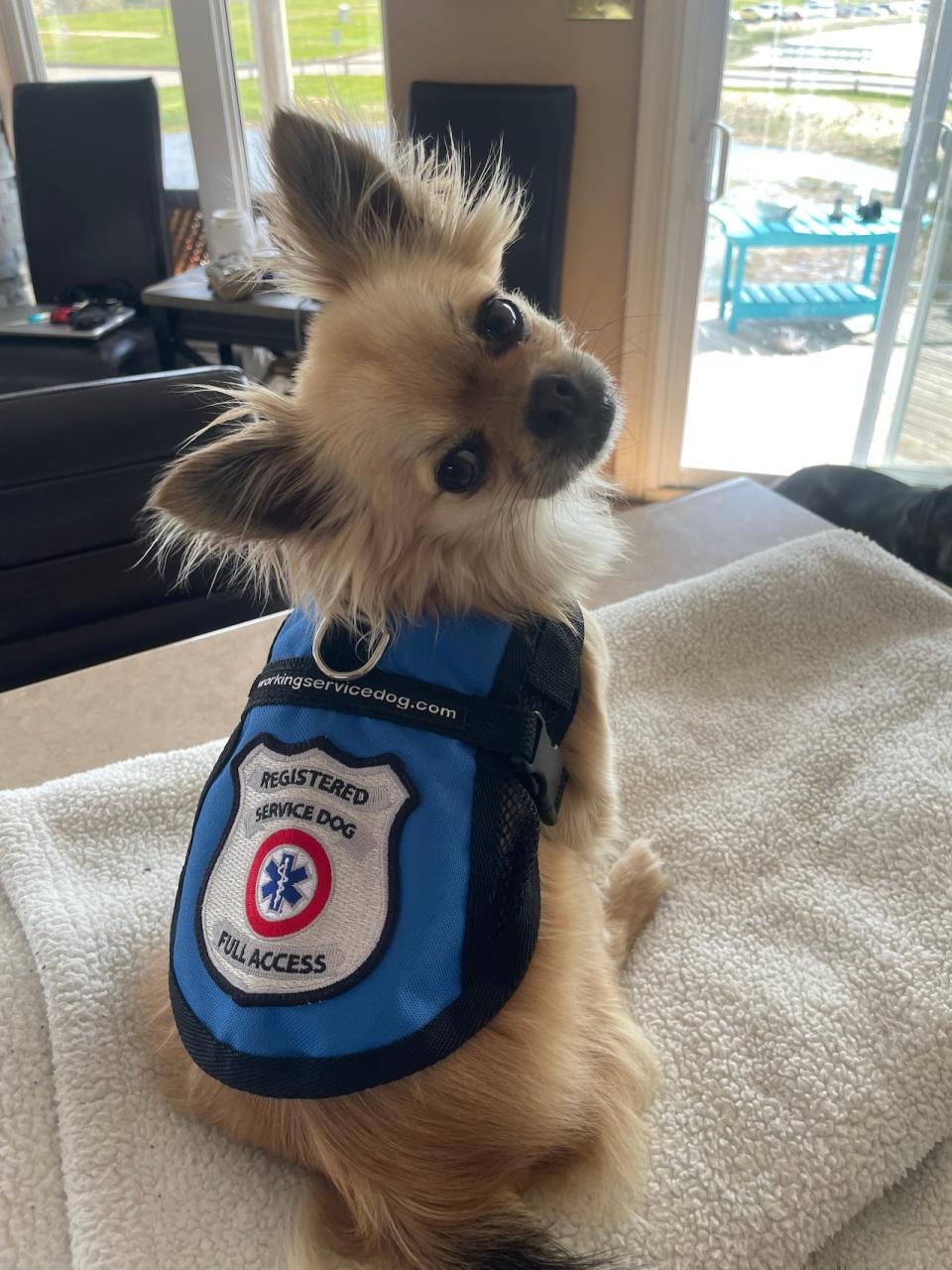
Foxy, a long-haired Chihuahua is able to detect cortisol, a stress hormone produced by the body. (Submitted by Bill Grimmer)
No N.B. legislation
"New Brunswick does not have legislation or regulations specific to service dogs," confirmed Sarah Bustard, director of communications for the Department of Justice and Public Safety.
Instead, the government includes service dogs in its Guideline on Accommodating People with Service Animals, which states: "An animal that is trained, including self-trained, to provide personalized assistance for someone with a disability may be a service animal for the purposes of the Act."
As for emotional support animals, the documents says, "The use of an animal that is not a service animal but instead a companion, emotional support or therapeutic animal may still be protected under the Act if the animal is part of a person's treatment for a disability."
Grimmer believes there should be a distinct difference between emotional support animals and animals that are trained to help humans with a disability.
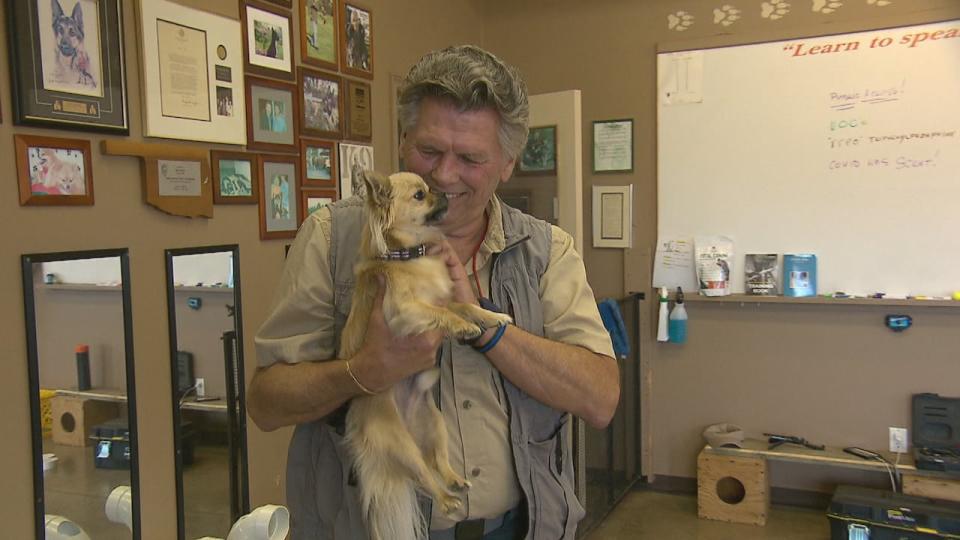
In this file photo from 2021, Grimmer takes a break from training Foxy. (Pierre Fournier/CBC)
In the United States, for example, service animals are covered under the Americans with Disabilities Act. The act says service animals must be dogs but can be any breed and any size and must be "trained to perform a task directly related to a person's disability."
Essentially, they're like a "piece of medical equipment," said Marlene Ruiz, the director of oversight for the legislative committee of the International Association of Canine Professionals.
"They are a living creature, but they are there to mitigate a disability for its handler," she said.
Ruiz said it's important to have clear legislation to "set parameters."
She said it "helps the public and it helps business owners understand their role when there is a service dog in a public setting."
Legislation is also important because it provides punishments for "fake service dogs," said Ruiz.
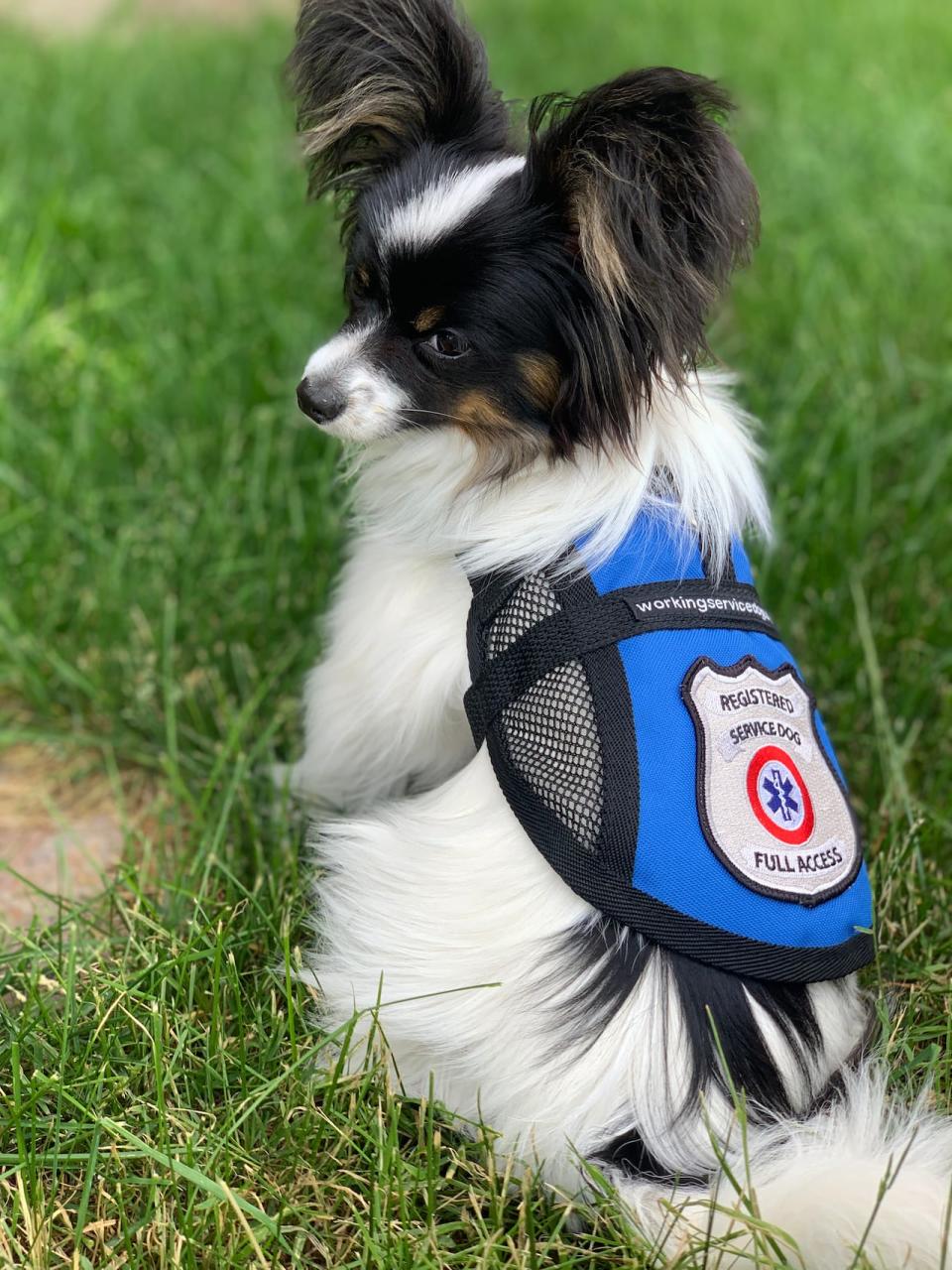
Suki is a papillon trained as a service dog. (Submitted by Bill Grimmer)
"Representing a pet dog as a service dog in public is a misdemeanor crime in many states," she said. "Those laws should be enforced."
The governing act lists examples of true service dogs, including "a person who uses a wheelchair may have a dog that is trained to retrieve objects for them."
"A person with PTSD may have a dog that is trained to lick their hand to alert them to an oncoming panic attack.
"A person who has epilepsy may have a dog that is trained to detect the onset of a seizure and then help the person remain safe during the seizure."
Under the U.S. act, these dogs aren't required to be certified or go through a professional training program.
Businesses can ask whether the dog is required because of a disability. They can also ask what the dog has been trained to perform. But they're not allowed to ask for documentation, for the dog to demonstrate its work, or ask about the nature of the person's disability.
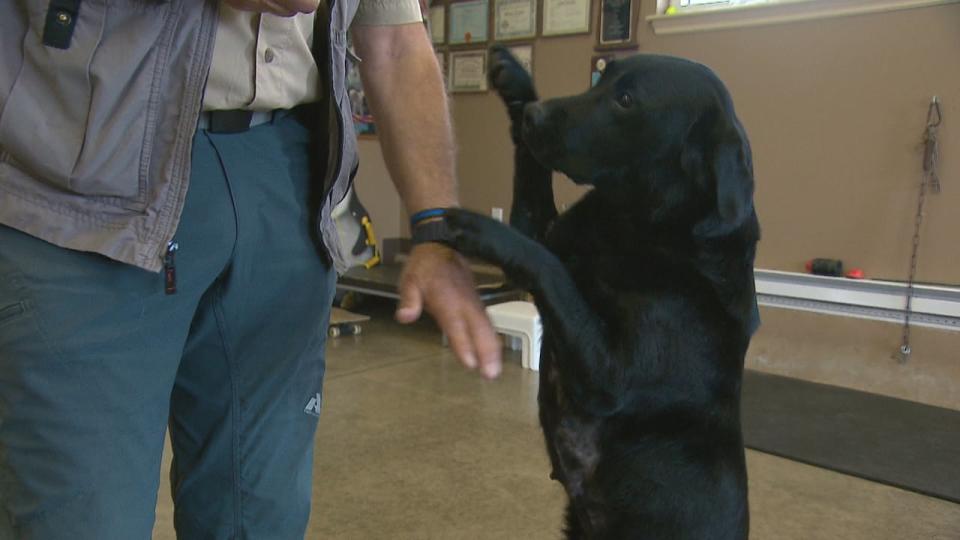
Grimmer's own dog Annie shows off her repertoire of tricks, which includes rolling over, sitting pretty and detecting cortisol. (Pierre Fournier/CBC)
State and local governments can require service dogs to be licensed and vaccinated — but only if that's required of all dogs. They can offer voluntary service dog registration programs but cannot make them mandatory.
The act specifically does not apply to "emotional support or comfort comfort dogs, because providing emotional support or comfort is not a task related to a person's disability."
Grimmer said the U.S. approach could be used as a starting point in Canada — but he would make a couple of changes.
First, he believes service dogs shouldn't be limited to just helping their owners with a disability. For the last few years, he's been training dogs to detect cortisol, which is the body's stress hormone.
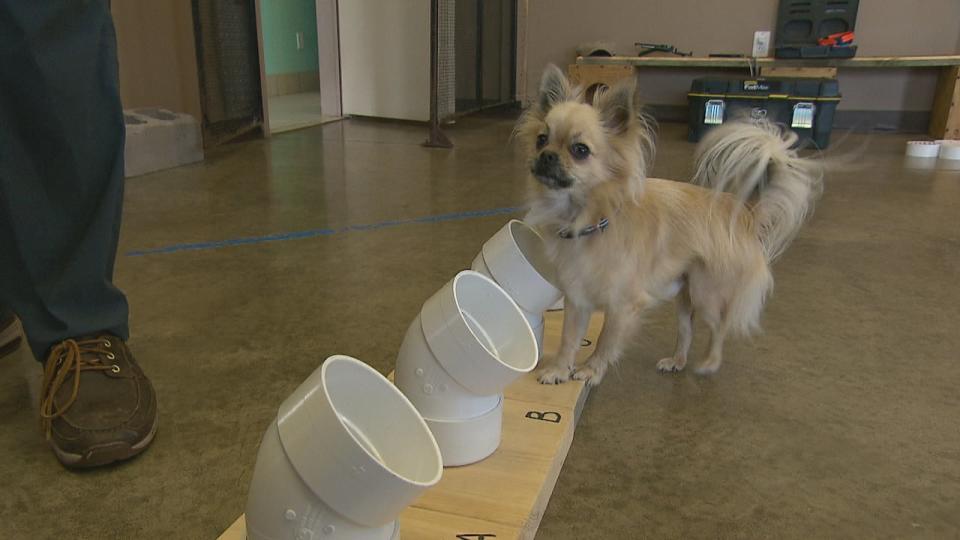
Foxy during his training in 2021. (Pierre Fournier/CBC)
Once detected, the dogs do what they have been doing for humans throughout history — comfort them and lower their stress levels. But these dogs don't just have to detect cortisol in their owners, said Grimmer. They can detect it in school settings or doctors offices, and other therapeutic settings.
Under the U.S. law, and the one in Nova Scotia, these wouldn't be considered service dogs because they're not helping their owners with a disability, they're helping other people.
The second thing Grimmer would change is that dogs should have to be certified as service dogs.
Allowing an animal without proper training or screening to accompany a person wherever they go could put the public at risk, he said. A dog might be able to perform a life-saving task, but if it bites someone or disturbs an entire restaurant, it shouldn't be given the same rights as a true service dog.
Grimmer said service dogs should be trained to perform a specific task and to behave properly when in public. He said "public access testing" should be a part of service dog certification.

